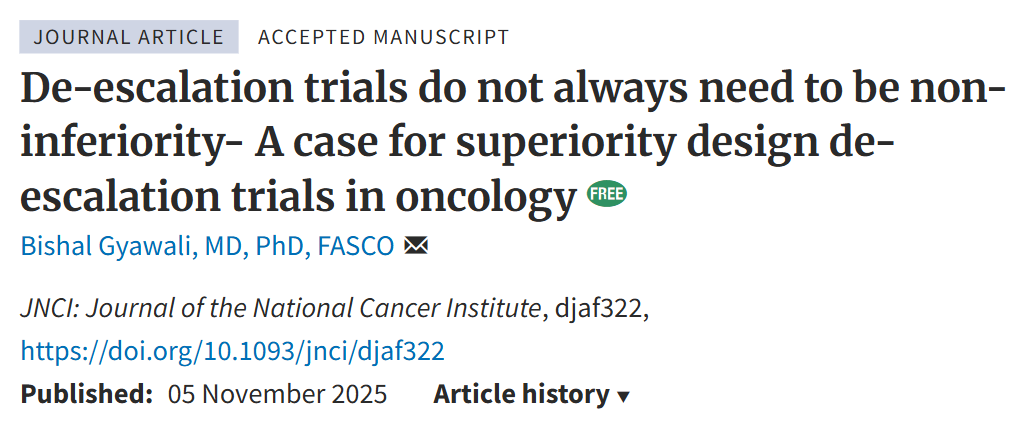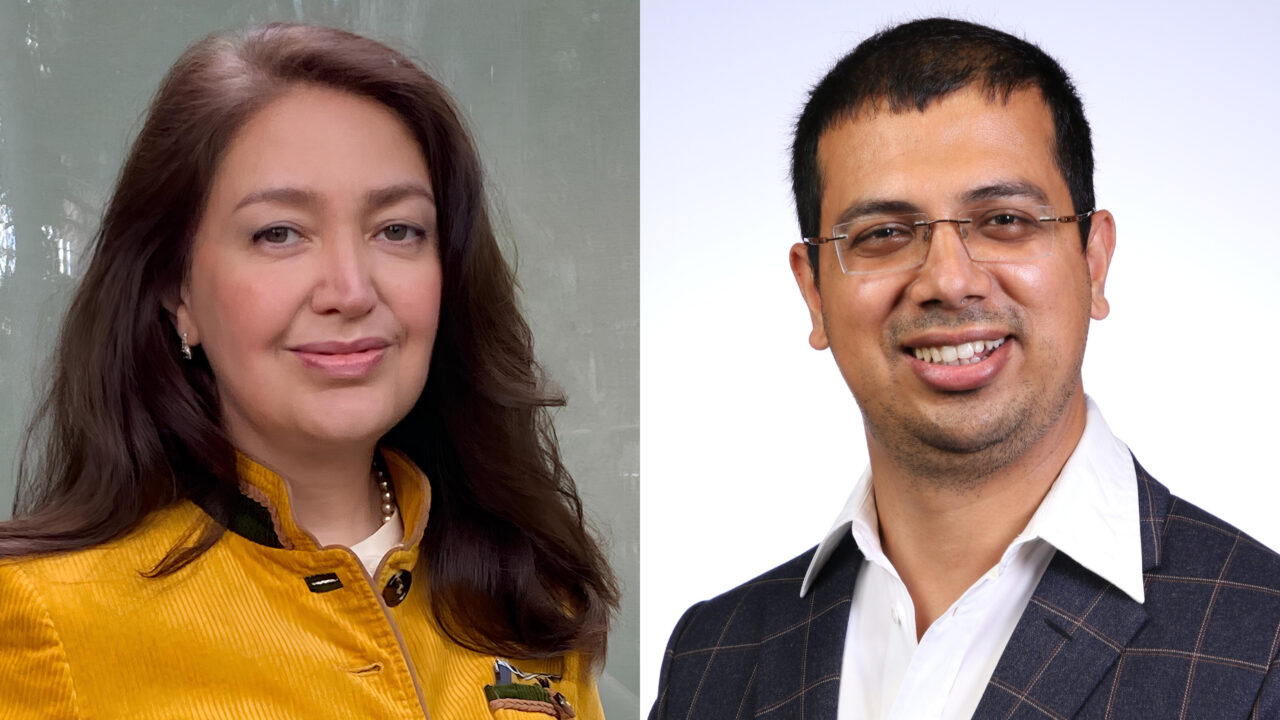Sahar Barjesteh van Waalwijk van Doorn-Khosrovani, Associate Professor of Medical Oncology at Leiden University Medical Center, shared a post on LinkedIn about a paper by Bishal Gyawali published in JNCI: Journal of the National Cancer Institute:
“For many therapies, the right dose or duration isn’t well studied. Usually, showing that a lower dose or shorter therapy is ‘almost as good’ means running a big, expensive trial and figuring out exactly what ‘almost as good’ even means… and by the time the trial is done, many will debate the ‘non-inferiority margin’ and end up not implementing the ‘lower dose strategy’, simply because of risk-aversion.
A simpler and more logical approach is to flip the question: ‘is the current standard therapy really better than a lower dose or shorter treatment?’
The burden of proof should lie on ‘more’ treatment… Surprisingly, answering this needs a smaller study, costs much less, and gives results much faster…so much more efficient.
Read the recently published paper by Bishal Gyawali, discussing a.o. The SONIA trial: ‘De-escalation trials do not always need to be non-inferiority- A case for superiority design de-escalation trials in oncology’.
Also, check our work on dose-optimisation studies by Gauthier Bouche.
And why “Less is more’.”
Title: De-escalation trials do not always need to be non-inferiority- A case for superiority design de-escalation trials in oncology
Author: Bishal Gyawali
You can read the Full Article in JNCI: Journal of the National Cancer Institute.

More posts featuring Sahar Barjesteh van Waalwijk van Doorn-Khosrovani.


